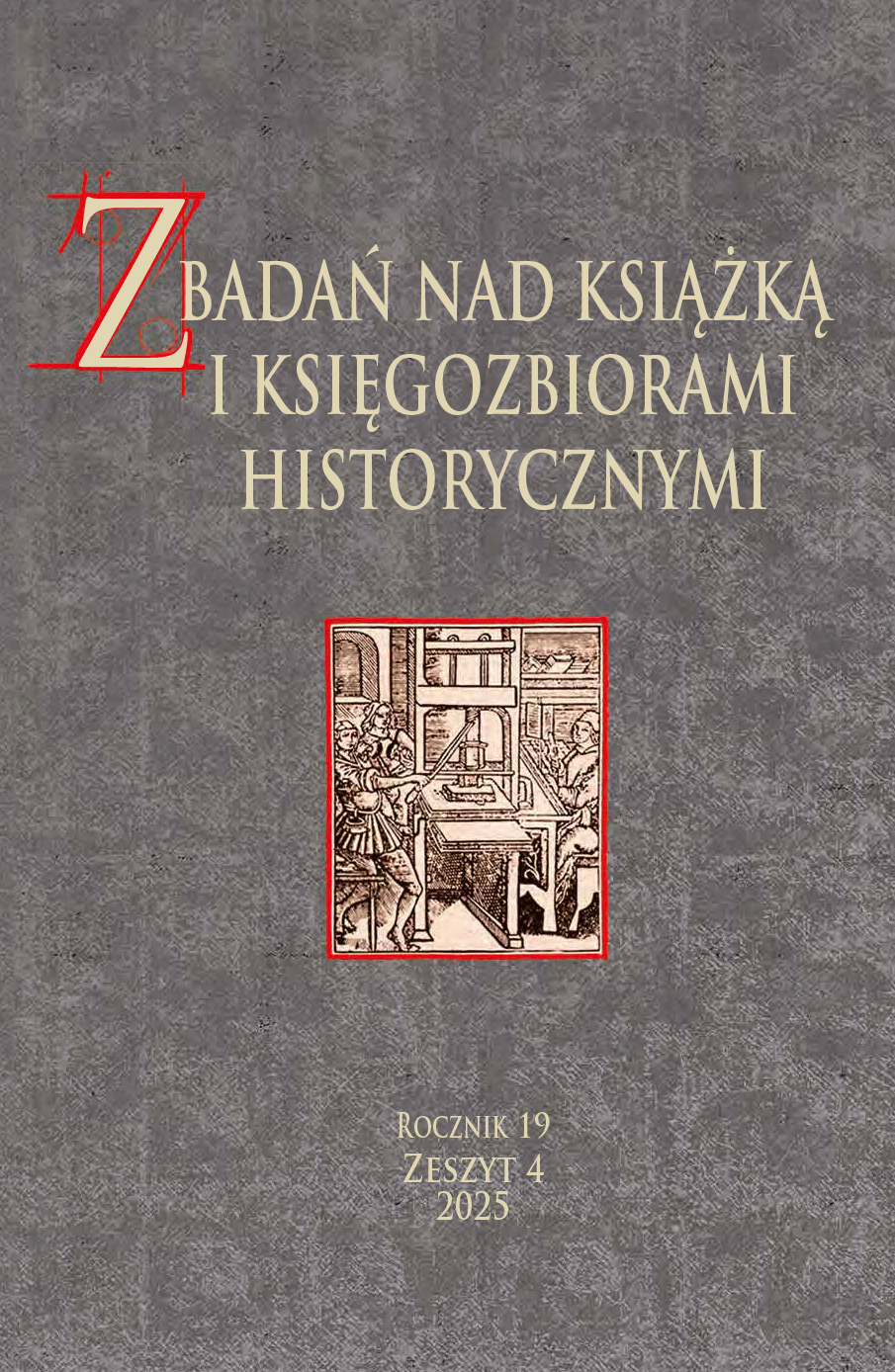From the research on sacral writings from medieval library of Cistercian monastery in Mogiła
DOI:
https://doi.org/10.33077/uw.25448730.zbkh.2016.109Keywords:
History of the Church, orders, Cistercians, Mogiła, codicology, sacral writingsAbstract
Presented article is a part of broader research focused on scriptorium and library of the Cistercians convent in Mogiła till the turn of 15th century. Authors used fi ndings of Edward Potkowski’s research according to which one of the form of using writing in medieval times was applying it to implementing principles of faith and expressing God’s glory. Within sacral writing there exist differentiated subjects, which are discussed by authors detailed way, indicating specifi c works and (when it was possible) their authors. Presented research was limited to 15th century due to the fact that 20 preserved medieval codex’s stemmed from this period. Authors examined 14 volumes out of the 20, remaining 6 were unavailable due to reconstruction works in convents’ archive. They were examined however through the archival catalogue.
In medieval legacy of the Cistercians’ convent in Mogiła prevails homiletics (168 texts). The other documents frequently occurring in the disputed collection are theological works, Holy Bible with exegesis and i.e liturgy and moralisation. Dominating works deal with teaching the religion, spiritual formation and offi cium divinum, what was typical for Cistercians book collections and generally for medieval conventual libraries. When it comes to authors majority of them are the ones belonging to the convent of Mogiła – abbot Piotr Hirszberg, brother Mikołaj from Kraków or Jacobus de Paradiso. Such a situation should not be surprising, because conventual library ex offi cio was meant to keep the works of their authors. Among the works of authors who did not belong to Mogiła convent the most numerous texts are written by St. Bernard of Clairvaux.






